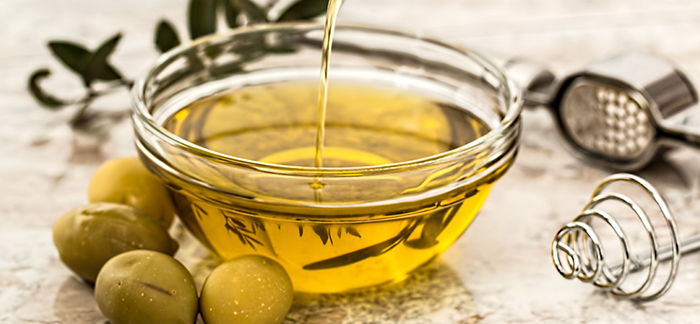
You may think oil is bad for your health, but there are good fats and bad fats.
Let’s unpack which is which.
“Good” (unsaturated) fats, like avocados, coconut oil, almonds, macadamias, and eggs with yolk help keep your heart healthy, increasing levels of “good” cholesterol.
“Bad” (saturated) fats like canola oil, sunflower oil, vegetable oils, margarine, and processed meats are less healthy for your heart, increasing levels of “bad” cholesterol.
The good news is that olive oil has loads of health benefits and is a great additive to your diet - it’s high in healthy monounsaturated fats, high heat-resistant, and boasts incredible health benefits.
How olive oil is made

Made by grinding olives, natural olive oil is extracted chemically or mechanically. Virgin olive oil is always made cold-pressed, with neither heat nor chemicals. Olives are ground mechanically into a paste to extract the oil, and then pressed.
The health benefits of olive oil
- fight Alzheimer’s disease and cancer cells
- increases your Vitamin E and K levels (Vitamin E in olive oil can help reduce the appearance of fine lines and wrinkles, plus its antioxidants protect against free radicals which add to ageing)
- lower your risk of heart disease and prevent strokes
- reduce your risk of Type 2 Diabetes
- treat Rheumatoid Arthritis
How to add olive oil into your diet
The simplest way to add more olive oil into your diet is to substitute olive oil for other fats you’d normally bake or cook with.

For example use olive oil instead of:
- butter on muffins and toast
- butter or vegetable oil when baking cakes and cookies
- butter when frying eggs
- mayonnaise in chicken and tuna salads
- vegetable oil when sautéing meat and vegetables
Need some inspiration? Make your own salad dressing!
Rosemary-Balsamic Vinaigrette (Makes 1 cup)
This simple salad dressing is a healthy homemade alternative.

Ingredients:
- ¾ cup extra virgin olive oil
- ¼ cup balsamic vinegar
- 1 tsp fresh rosemary (finely chopped)
- 1 garlic clove (crushed/grated)
- ½ tsp salt
- ¼ tsp black pepper
How to incorporate olive oil into your hair and skincare

Olive oil is an excellent moisturiser to add to your daily routine - or when your hair or skin feels particularly dry:
- Split ends? Apply olive oil to moisturise and increase elasticity.
- Dry skin? Apply a thin layer of olive oil to moisturise after cleansing (best applied before lotion and makeup).
- Painful sunburn? Apply a thin layer of olive oil, washing away after letting it sit for an hour.
- Cracked, dry feet? Rub on some olive oil before bed. Wear an old pair of socks, keeping them on throughout the night. Wash off the oil in the morning, and pat dry.
- Cracked, dry lips? Dab on a little olive oil to soothe.
- Dry cuticles? Apply some olive oil and massage it in. Let it sit for 15 minutes before washing away.
- Need eye makeup remover? Dab a little olive oil onto a cloth or cotton wool pad.
- Nappy rash? Apply a thin layer of olive oil to help soothe and lessen your baby’s pain and skin irritation.
- Apply a little olive oil onto acne, bruises, cuts, damaged skin, eczema, scars, and stretch marks to see its anti-inflammatory properties in action.
Using olive oil in the home

You’d be surprised at the uses of olive oil in your home, from oiling squeaky doors to shining your shoes. Mix 3 parts olive oil:1 part distilled white vinegar. Test it first on a small area before freshening up your furniture.
Got paint on your child’s arms, hands, or legs? Dab on some olive oil, letting it sit for a few minutes. After massaging, the paint will loosen and wash away. This also helps loosen stuck chewing gum from your child’s hair!
There are plenty more health benefits and practical uses of olive oil to discover. By making some simple substitutions, favouring healthy fats over unhealthy fats, and adding more olive oil into your lifestyle, you’ll soon start experiencing the effects of this miracle ingredient!
Date Published: 13 March 2023
